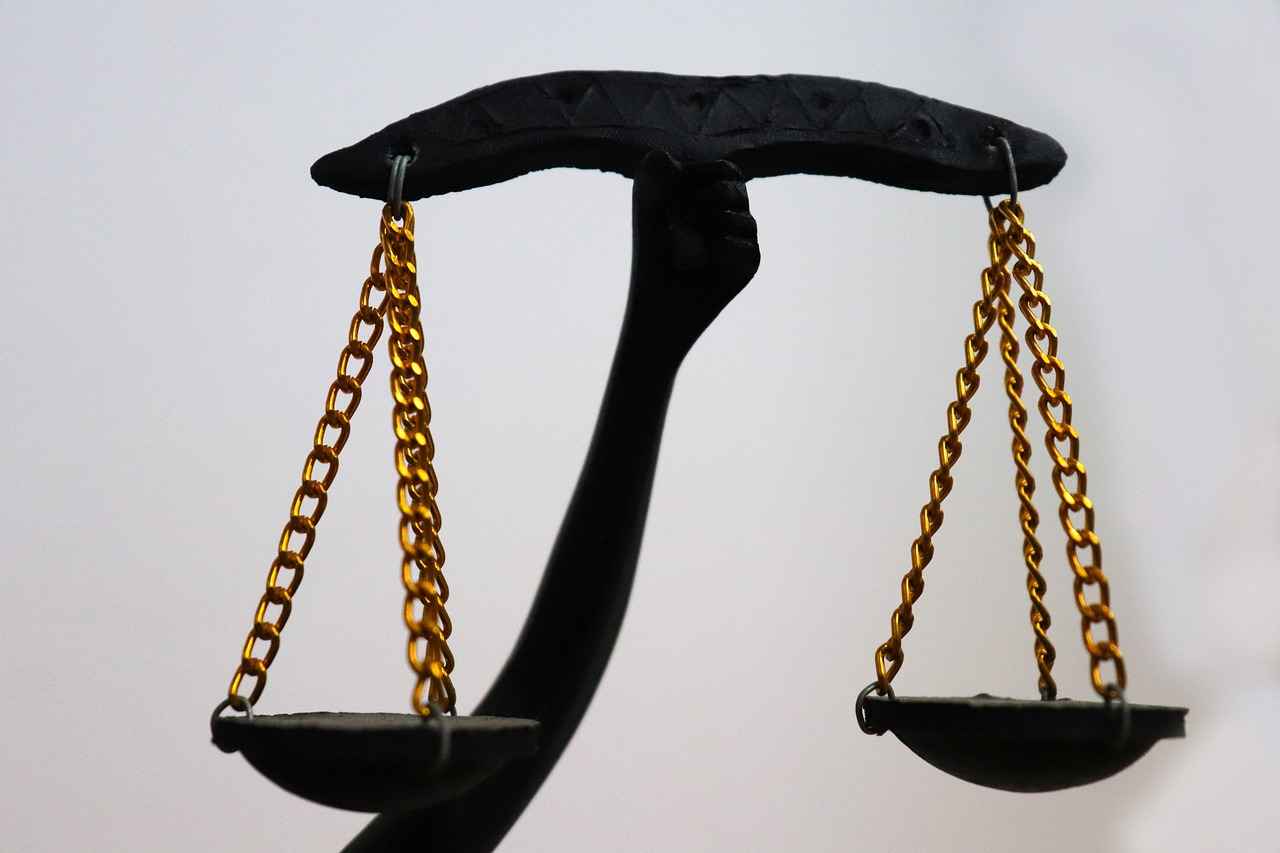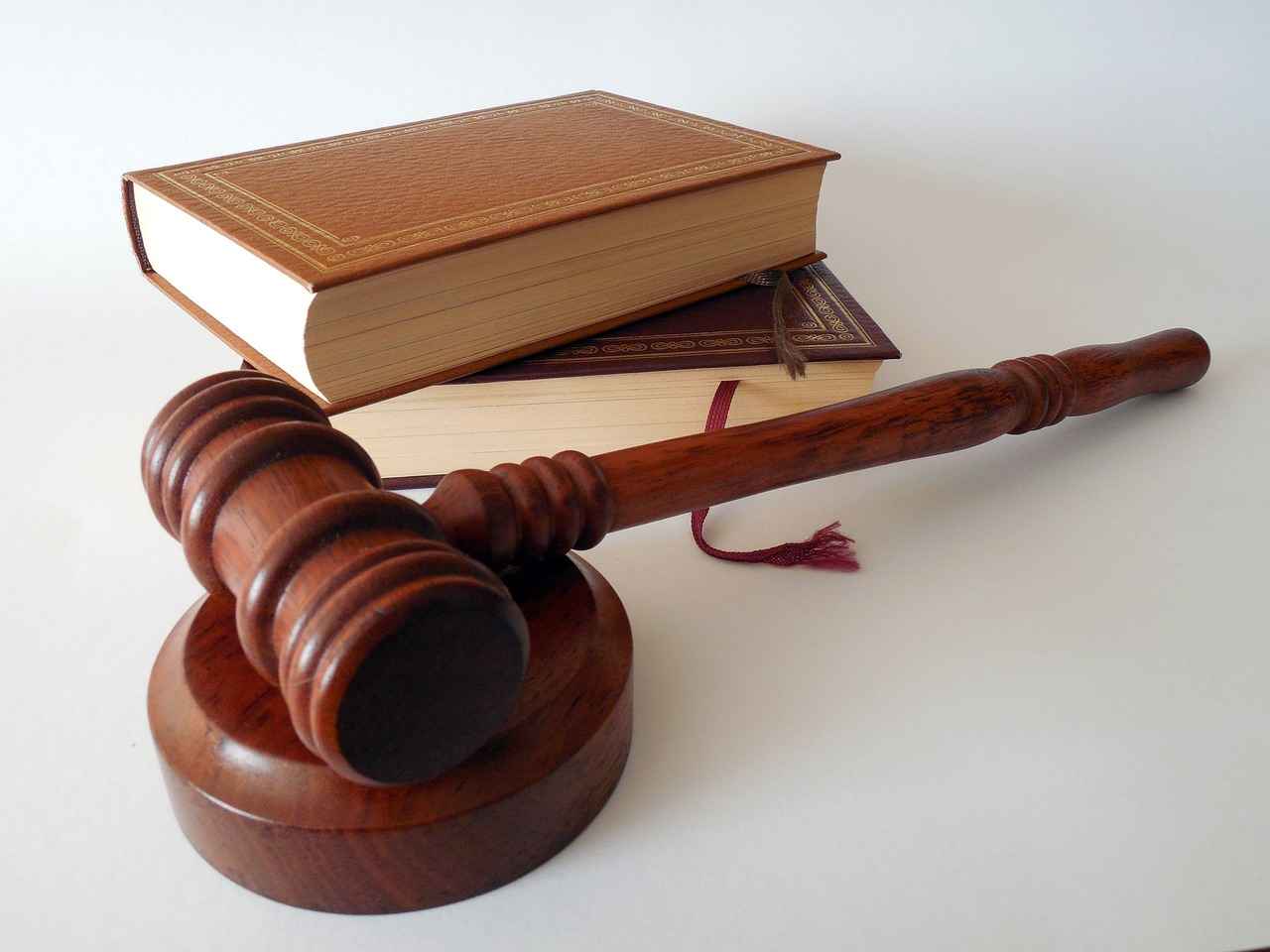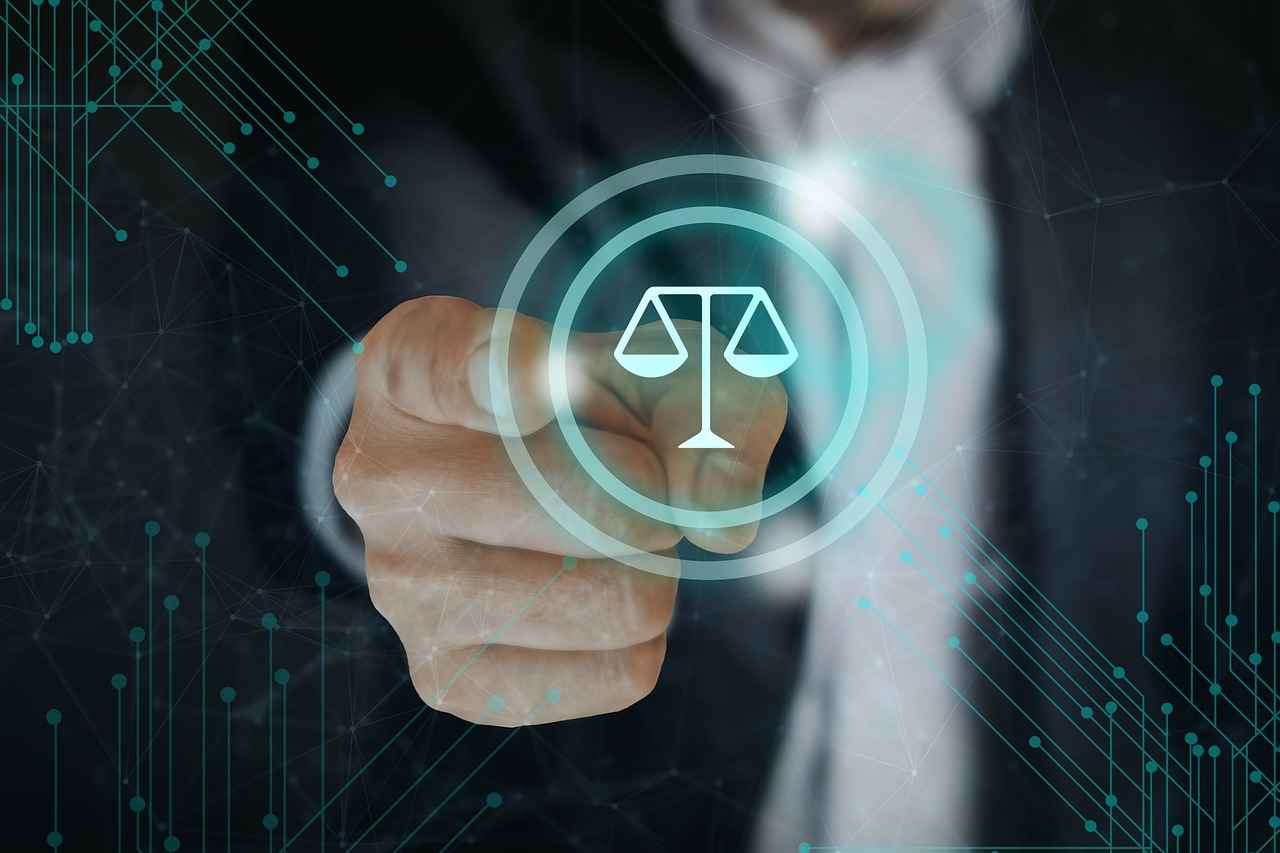This article provides an in-depth guide on the most common types of legal cases in the U.S. and offers expert advice on selecting qualified lawyers in Toledo, Ohio.
Personal injury cases are among the most prevalent legal issues in the United States. These cases typically arise from incidents such as car accidents, slip and falls, and workplace injuries. When navigating personal injury claims, it’s essential to understand the nuances involved. Look for attorneys who specialize in personal injury law and have a track record of success. Consider their experience, client testimonials, and whether they work on a contingency fee basis, meaning they only get paid if you win your case.
Medical malpractice cases can be incredibly complex, often requiring expert testimony and a deep understanding of medical standards. If you suspect negligence from a healthcare provider, it’s crucial to consult with an attorney who specializes in medical malpractice. Check for their experience in handling similar cases and their success rate. Additionally, ensure they are familiar with the specific medical laws in your state, as these can vary significantly.
Breach of contract cases can involve significant financial stakes, making it essential to choose an attorney with expertise in contract law. When selecting a lawyer, verify their experience with similar cases and their understanding of the specific terms involved in your contract. Look for attorneys who have successfully resolved disputes through negotiation and litigation, as this dual capability can be invaluable.
Property disputes can arise from various issues, including boundary disagreements and landlord-tenant conflicts. Selecting the right attorney can help you navigate these emotionally charged situations effectively. Look for attorneys who specialize in real estate law and have experience with similar disputes. A good lawyer will provide clear communication and a strategic approach to resolve your issue efficiently.
In urban areas, landlord-tenant disputes are common and can escalate quickly. If you find yourself in such a situation, seek an attorney who is well-versed in housing laws. They should be able to provide insights into tenant rights and landlord obligations. Consider their familiarity with local laws and their ability to represent you in negotiations or court if necessary.
Defamation cases, which include libel and slander, require a nuanced understanding of the law. If you believe you have been defamed, it’s crucial to consult with an attorney who specializes in media law. Look for someone who has successfully handled defamation cases, as this area of law can be particularly challenging. Understanding the burden of proof and potential defenses is critical in these cases.
Employment disputes can arise from wrongful termination, discrimination, or harassment. Understanding your rights is vital when seeking legal representation. Look for attorneys who specialize in employment law and have a strong track record of representing employees. They should be familiar with federal and state employment laws and have experience in negotiating settlements or litigating cases.
Product liability cases center on harmful or defective products. If you have been injured by a product, it’s essential to find an attorney with experience in this area. Look for lawyers who have successfully handled similar cases and understand the complexities of proving liability. Their expertise can enhance your chances of a successful claim against manufacturers.
Wrongful death cases are emotionally challenging and require a compassionate yet skilled attorney. If you are pursuing a wrongful death claim, seek a lawyer who has experience in this sensitive area of law. They should be able to navigate the legal complexities while providing the emotional support you need during this difficult time. Look for attorneys who have a successful history in handling wrongful death cases.
Class action lawsuits allow individuals to band together against common grievances, such as consumer fraud or corporate negligence. If you are considering joining a class action, it’s crucial to find an attorney who specializes in this type of litigation. Look for lawyers with experience in managing large-scale cases and a proven track record of successful outcomes.
Criminal defense cases, including assault and battery, require specialized legal expertise. When selecting a criminal defense attorney, consider their experience with similar charges and their approach to case strategy. Look for lawyers who have a strong understanding of criminal law and a history of achieving favorable outcomes for their clients.
Cybercrime cases are on the rise, necessitating attorneys who understand both technology and the law. If you are facing charges related to cybercrime, it’s essential to find a lawyer with expertise in this area. Look for attorneys who stay updated on the latest laws and trends in cyber law, as well as those with experience in defending clients against cyber-related offenses.
Family law encompasses various sensitive matters, including divorce, child custody, and support issues. Finding an empathetic and experienced attorney can significantly impact your case’s outcome. Look for lawyers who specialize in family law and have a strong understanding of local family court procedures. Their experience will be crucial in navigating the emotional and legal complexities involved.

Understanding Personal Injury Cases
When it comes to personal injury cases, these legal matters are not only prevalent but can also stem from a wide array of incidents. From car accidents to slip and fall incidents, the implications of personal injuries can be severe, affecting the victim’s quality of life, financial stability, and emotional well-being. Therefore, understanding the intricacies of these cases is vital for anyone seeking legal recourse.
In essence, a personal injury case arises when an individual suffers harm due to someone else’s negligence or intentional wrongdoing. The primary goal of these cases is to secure compensation for the injured party. However, navigating the legal landscape can be quite challenging, especially without the guidance of a qualified attorney.
Why is Selecting the Right Attorney Crucial?
Choosing the right attorney for a personal injury case can significantly influence the outcome. Here are several reasons why this selection is paramount:
- Experience: An attorney with a proven track record in personal injury law will understand the nuances of these cases, including how to negotiate with insurance companies effectively.
- Specialization: Personal injury law encompasses various fields such as medical malpractice, product liability, and workplace injuries. A specialized attorney will possess the necessary knowledge to handle your specific case type.
- Reputation: An attorney’s reputation within the legal community can impact your case. Look for reviews, testimonials, and past case outcomes to gauge their effectiveness.
- Communication: An attorney who communicates clearly and promptly can make the legal process less stressful for you, keeping you informed every step of the way.
How to Find the Right Personal Injury Attorney
Finding the most qualified attorney involves several steps:
- Research: Utilize online platforms such as Avvo, FindLaw, or Martindale-Hubbell to search for personal injury attorneys in your area. Look for those with high ratings and positive client feedback.
- Consultation: Most personal injury attorneys offer free consultations. Use this opportunity to discuss your case and evaluate the attorney’s expertise and approach.
- Ask Questions: During your consultation, ask about their experience with cases similar to yours, their fee structure, and how they plan to approach your case.
- Check Credentials: Verify the attorney’s credentials, including their education, bar association membership, and any additional certifications in personal injury law.
- Trust Your Instincts: After meeting with potential attorneys, trust your gut feeling. Choose someone you feel comfortable with and who demonstrates a genuine interest in your case.
In summary, personal injury cases are complex and require expert legal guidance. By understanding the nature of these cases and taking the time to select the right attorney, you can significantly improve your chances of a favorable outcome.

Medical Malpractice: What You Need to Know
When it comes to medical malpractice, the stakes are incredibly high. Victims of medical negligence often face life-altering consequences, making it essential to have a qualified attorney by your side. This area of law is not just about understanding the legal framework; it requires a deep comprehension of medical practices and standards. Here, we will discuss what you need to know about medical malpractice and how to find the right attorney for your case.
Understanding Medical Malpractice
Medical malpractice occurs when a healthcare professional fails to provide the standard of care expected in the medical community, leading to patient harm. Common examples include misdiagnosis, surgical errors, and improper treatment. Due to the complexity of these cases, they often involve extensive medical records and expert testimony, making it crucial to have an attorney with specialized knowledge.
How to Find a Qualified Medical Malpractice Attorney
Finding the right attorney for a medical malpractice case can be daunting. Here are some effective strategies:
- Research Specialization: Look for attorneys who specialize in medical malpractice law. They should have a proven track record of handling similar cases successfully.
- Check Credentials: Verify the attorney’s qualifications, including their education, bar association membership, and any additional certifications in medical malpractice.
- Read Reviews: Online reviews and testimonials from previous clients can provide valuable insights into an attorney’s reputation and effectiveness.
- Consult Professional Associations: Organizations like the American Association for Justice (AAJ) or the American Bar Association (ABA) can help you find qualified attorneys in your area.
Initial Consultations
Many attorneys offer free initial consultations. Use this opportunity to discuss your case and ask questions. Inquire about their experience with medical malpractice cases, their approach to litigation, and their success rates. This meeting is also a chance to gauge their communication style and whether you feel comfortable working with them.
Red Flags to Avoid
- Lack of Experience: Be cautious of attorneys who lack experience in medical malpractice cases or who cannot provide references from past clients.
- Pressure Tactics: Avoid attorneys who pressure you into making quick decisions. A reputable attorney will give you the time you need to think things over.
- Unclear Fee Structures: Make sure you understand how the attorney charges for their services. Look for transparency in fee structures, whether they operate on a contingency fee basis or charge hourly rates.
Importance of Expert Witnesses
In medical malpractice cases, expert witnesses play a crucial role in establishing the standard of care and demonstrating how it was breached. Your attorney should have a network of qualified medical experts who can provide testimony to support your case. This can significantly enhance your chances of a favorable outcome.
Understanding the Legal Process
The legal process for medical malpractice cases can be lengthy and complicated. Your attorney should be able to guide you through each step, from filing a complaint to navigating pre-trial motions and potentially going to trial. Understanding the timeline and what to expect can help alleviate some of the stress associated with these cases.
Final Thoughts
Choosing the right attorney for your medical malpractice case is vital for ensuring that your rights are protected and that you receive the compensation you deserve. By conducting thorough research, asking the right questions, and being aware of red flags, you can find a qualified legal professional who will advocate for your best interests. Remember, the right attorney can make all the difference in the outcome of your case.

Breach of Contract: Legal Implications and Attorney Selection
Breach of Contract: Legal Implications and Attorney Selection
Breach of contract cases can have profound financial implications for all parties involved. When one party fails to fulfill their contractual obligations, the other party may suffer significant losses. This can lead to costly litigation, making it essential to choose the right attorney who specializes in contract law. An experienced attorney can navigate the complexities of contract disputes, providing invaluable guidance throughout the legal process.
Understanding the nuances of contract law is crucial. Different types of contracts, such as written agreements, verbal contracts, and implied contracts, can affect how a breach is interpreted and litigated. For instance, a written contract typically holds more weight in court than a verbal agreement. Moreover, the specific terms and conditions outlined in a contract can significantly influence the outcome of a case. Therefore, having an attorney who is well-versed in these details can make a substantial difference in the effectiveness of your legal strategy.
When selecting an attorney for a breach of contract case, consider the following factors:
- Experience: Look for attorneys who have a proven track record in handling breach of contract cases specifically. Their experience can provide insights into the likely outcomes and strategies that work best in your jurisdiction.
- Specialization: Attorneys who specialize in contract law are more likely to be familiar with the nuances and complexities of your case. This specialization can lead to a more favorable outcome.
- Reputation: Research the attorney’s reputation through online reviews, testimonials, and referrals. A strong reputation can indicate a higher likelihood of success.
- Communication: Choose an attorney who communicates clearly and regularly. Good communication is vital for understanding your case’s progress and the strategies being employed.
- Fees: Discuss the attorney’s fee structure upfront. Understanding whether they charge a flat fee, hourly rate, or contingency fee can help you budget for your legal expenses.
Additionally, be wary of red flags when selecting an attorney. If an attorney guarantees a specific outcome or seems overly aggressive in their tactics, it may be wise to seek alternatives. Trust your instincts; a good attorney should provide honest assessments and realistic expectations based on their expertise.
In major metropolitan areas like New York City, Los Angeles, and Chicago, numerous resources are available to help you find qualified attorneys. Legal directories, bar association referrals, and online platforms like Avvo or FindLaw can provide listings of attorneys specializing in breach of contract cases. Utilizing these resources can help you make an informed decision, ensuring you have the best legal representation possible.
Ultimately, the stakes in breach of contract cases are high, and the right attorney can make a significant difference in the outcome. By carefully considering these factors and conducting thorough research, you can find a qualified legal professional who will advocate for your interests effectively.

Property Disputes: Navigating Legal Challenges
Property disputes can be emotionally charged and legally intricate. Such conflicts often arise from disagreements over ownership, boundaries, or lease agreements, making the need for competent legal representation essential. Navigating these challenges effectively requires a deep understanding of property law and the nuances involved in each case.
When selecting a lawyer for property disputes, it is crucial to consider their experience in real estate law. Look for attorneys who specialize in property disputes and have a proven track record of successful outcomes. You can start your search by utilizing platforms like Avvo or FindLaw, which provide ratings and reviews of attorneys based on their expertise and client feedback.
In major metropolitan areas such as New York City and Los Angeles, the competition among attorneys can be fierce. Therefore, it is essential to seek out those who have specific experience dealing with local laws and regulations. For instance, New York has unique laws regarding rent stabilization and tenant rights, while California has its own set of regulations governing property ownership and disputes.
- Check Credentials: Ensure the attorney is licensed to practice in your state and has relevant certifications in property law.
- Initial Consultation: Many attorneys offer free consultations. Use this opportunity to gauge their understanding of your specific issues.
- Ask About Their Approach: Inquire how they plan to handle your case. A good attorney should be able to outline a clear strategy.
- Client Reviews: Look for testimonials from past clients, which can provide insight into their reliability and effectiveness.
It’s also important to be aware of red flags when hiring an attorney. Be cautious of lawyers who promise guaranteed outcomes or those who pressure you into making quick decisions. A reputable attorney will provide realistic expectations and take the time to understand your case thoroughly.
In property disputes, communication is key. Choose an attorney who is responsive and willing to keep you informed throughout the legal process. This will not only help you feel more secure but will also ensure that you are actively involved in your case.
In conclusion, property disputes can be complex and emotionally draining. By choosing the right attorney with the appropriate experience and approach, you can navigate these challenges with greater confidence and clarity.

Landlord-Tenant Disputes: Finding the Right Legal Help
Landlord-tenant disputes are increasingly common, particularly in urban environments where rental properties are prevalent. These conflicts can arise over various issues, including lease agreements, eviction notices, security deposits, and property maintenance. Understanding how to navigate these disputes is essential for both landlords and tenants. One of the most effective ways to resolve conflicts is by securing the assistance of a knowledgeable attorney who specializes in landlord-tenant law.
When searching for the right legal representation, consider the following steps:
- Research Local Attorneys: Start by searching for attorneys who specialize in landlord-tenant disputes in your area. Online legal directories, such as Avvo or FindLaw, can provide valuable insights into lawyers’ qualifications and areas of expertise.
- Check Reviews and Ratings: Look for client reviews and ratings to gauge the attorney’s reputation. Websites like Yelp and Google Maps can be helpful in assessing client satisfaction.
- Verify Credentials: Ensure that the attorney is licensed to practice law in your state and has experience specifically in landlord-tenant issues. You can check their credentials through your state’s bar association website.
- Schedule Consultations: Many attorneys offer free initial consultations. Use this opportunity to discuss your case and assess whether the attorney is a good fit for your needs. Prepare a list of questions to ask during the meeting, such as their experience with similar cases and their approach to resolving disputes.
- Discuss Fees: Be clear about the attorney’s fee structure. Some may charge hourly rates, while others may work on a contingency basis. Understanding the financial implications upfront can prevent misunderstandings later on.
It is essential to look for attorneys who not only have the necessary experience but also exhibit strong communication skills and a willingness to advocate for your interests. A good attorney should be able to explain complex legal concepts in a way that is easy to understand, as well as keep you informed throughout the process.
Additionally, consider the attorney’s approach to conflict resolution. Some disputes can be settled amicably through negotiation or mediation, while others may require litigation. An attorney who is skilled in various methods of dispute resolution can provide you with the best chance of achieving a satisfactory outcome.
In urban areas, where the rental market can be competitive and complex, having a knowledgeable attorney can make a significant difference. They can help you understand your rights and responsibilities under local laws, navigate court procedures, and represent you in negotiations or legal proceedings.
Ultimately, finding the right legal help for landlord-tenant disputes involves thorough research, careful consideration of credentials, and an understanding of your specific needs. By taking these steps, you can ensure that you are well-represented and equipped to handle any challenges that may arise in your landlord-tenant relationship.

Defamation Cases: Libel and Slander Explained
Defamation cases are significant legal matters that involve damage to a person’s reputation through false statements. These cases can be categorized into two main types: libel, which refers to written defamation, and slander, which pertains to spoken defamation. Understanding the intricacies of these cases is essential for anyone seeking legal recourse or defending against such claims.
The legal framework surrounding defamation is complex and varies from state to state. In general, to win a defamation lawsuit, the plaintiff must prove that the statement made was false, damaging, and made with a certain level of fault. This fault can range from negligence to actual malice, particularly when the plaintiff is a public figure. Therefore, having a nuanced understanding of the law is crucial when navigating these cases.
When searching for an attorney who specializes in defamation law, consider the following steps:
- Research and Referrals: Start by seeking referrals from trusted sources, such as friends, family, or other legal professionals. Online legal directories can also provide listings of attorneys specializing in defamation cases.
- Check Credentials: Look for attorneys who have a proven track record in handling defamation cases. Review their educational background, years of experience, and any relevant certifications.
- Initial Consultations: Many attorneys offer free initial consultations. Use this opportunity to discuss your case and gauge the attorney’s understanding of defamation law. Ask about their approach to similar cases and their success rates.
- Evaluate Communication: Effective communication is vital in legal matters. Ensure that the attorney listens to your concerns and explains complex legal concepts in a way that you can understand.
- Assess Compatibility: Choose an attorney with whom you feel comfortable discussing sensitive issues. A strong attorney-client relationship can significantly impact the outcome of your case.
It’s also important to be aware of red flags when hiring a legal professional. Avoid attorneys who make unrealistic promises about outcomes or those who pressure you into making quick decisions. Transparency regarding fees and potential costs is essential; ensure you get a clear understanding of their billing practices upfront.
In addition, consider the attorney’s reputation within the legal community. Online reviews, testimonials, and their standing with local bar associations can provide insight into their professionalism and effectiveness. A well-respected attorney is more likely to be familiar with the intricacies of defamation law and how it is applied in your jurisdiction.
Defamation cases can be emotionally charged, as they often involve public perception and personal reputation. Therefore, having an attorney who understands the emotional aspects and legal nuances is vital. They can help you navigate the complexities of the legal system while providing the support you need during this challenging time.
In conclusion, finding the right attorney for a defamation case is crucial. By conducting thorough research, evaluating credentials, and maintaining open communication, you can secure legal representation that will advocate for your rights effectively. Remember, the stakes in defamation cases can be high, making it essential to choose wisely.

Employment Disputes: Legal Rights and Representation
Employment disputes can arise from a variety of situations, including wrongful termination, discrimination, and harassment. These disputes can significantly impact your career and emotional well-being, making it essential to understand your legal rights. Knowing when and how to seek legal representation is crucial for navigating these complex issues.
Understanding Your Rights
Every employee has certain rights protected by federal and state laws. These rights may include protection against discrimination based on race, gender, age, disability, and other factors. Additionally, laws like the Family and Medical Leave Act (FMLA) provide employees with the right to take leave for specific family and medical reasons without fear of losing their job. Familiarity with these rights is essential in recognizing when a violation has occurred.
Common Types of Employment Disputes
- Wrongful Termination: Occurs when an employee is fired for illegal reasons, such as retaliation for whistleblowing.
- Discrimination: Involves unfair treatment based on protected characteristics.
- Harassment: Includes unwanted behavior that creates a hostile work environment.
- Wage and Hour Disputes: Relate to unpaid wages or overtime violations.
Finding the Right Legal Representation
When faced with an employment dispute, finding the right attorney is critical. Here are some proven methods to help you in your search:
- Research Online: Use platforms like Avvo or FindLaw to find attorneys specializing in employment law. Look for reviews and ratings to gauge their reputation.
- Check Credentials: Ensure the attorney has experience in employment law, and verify their standing with the American Bar Association or local bar associations.
- Consultation: Schedule initial consultations with potential attorneys. This allows you to discuss your case and assess their communication style and expertise.
Red Flags to Avoid
Be cautious of certain warning signs when selecting an attorney:
- Lack of Experience: Avoid attorneys who do not have a proven track record in employment law.
- Poor Communication: If an attorney is unresponsive or fails to communicate clearly during initial consultations, it may indicate future issues.
- High Fees Without Transparency: Be wary of attorneys who cannot provide a clear fee structure or seem overly focused on financial gain.
In summary, employment disputes can be complex and emotionally draining. Understanding your rights and knowing how to find qualified legal representation can make a significant difference in the outcome of your case. By following the outlined steps, you can better navigate the legal landscape and protect your rights as an employee.

Product Liability Cases: Holding Manufacturers Accountable
Product liability cases are a critical aspect of consumer protection law, focusing on holding manufacturers, distributors, and retailers accountable for injuries caused by defective products. These cases can arise from various product flaws, including design defects, manufacturing defects, and inadequate warnings or instructions. Understanding the complexities of product liability is essential for anyone seeking justice after suffering harm due to a harmful product.
When pursuing a product liability claim, it is vital to select an attorney who specializes in this area of law. An experienced attorney will not only understand the legal nuances but also possess the skills necessary to navigate the often challenging landscape of product liability litigation. Here are some key factors to consider when searching for a qualified attorney in this field:
- Experience in Product Liability Law: Look for attorneys who have a proven track record of handling product liability cases. Their familiarity with similar cases can significantly enhance your chances of a successful outcome.
- Reputation and Reviews: Research potential attorneys through online reviews and testimonials. A strong reputation in the legal community can be a good indicator of their competence and reliability.
- Initial Consultation: Many attorneys offer a free initial consultation. Use this opportunity to gauge their understanding of your case and their approach to handling it.
- Resources and Support: Product liability cases often require substantial resources for expert witnesses, investigations, and other expenses. Ensure that the attorney you choose has the necessary support to pursue your claim effectively.
- Contingency Fees: Most product liability attorneys work on a contingency fee basis, meaning they only get paid if you win your case. Clarify the fee structure upfront to avoid any surprises later.
Additionally, it is essential to be aware of red flags that may indicate an attorney is not the right fit for your case:
- Lack of Specialization: Avoid attorneys who do not specialize in product liability or personal injury law, as they may lack the necessary expertise.
- Poor Communication: If an attorney is unresponsive or fails to communicate clearly during your initial meetings, it may be a sign of future issues.
- High Pressure Tactics: Be cautious of attorneys who pressure you to sign contracts or make quick decisions without giving you adequate time to consider your options.
In summary, product liability cases can be complex and emotionally taxing, but with the right legal representation, you can hold manufacturers accountable for their negligence. By focusing on experience, reputation, and communication, you can find an attorney who will advocate for your rights and help you navigate the legal system effectively.

Wrongful Death: Seeking Justice for Loved Ones
Wrongful death cases represent some of the most emotionally challenging legal situations one can face. The loss of a loved one due to someone else’s negligence or wrongful actions can leave families devastated and searching for answers. In this sensitive area of law, finding a compassionate and skilled attorney is essential for navigating the complexities of the legal system and seeking justice.
When pursuing a wrongful death claim, it is crucial to understand the legal framework surrounding these cases. Wrongful death laws vary by state, but generally, they allow surviving family members to file a lawsuit if a loved one’s death was caused by another party’s negligence or intentional act. This can include incidents such as car accidents, medical malpractice, or workplace accidents.
To find the right attorney for your wrongful death case, consider the following steps:
- Research Experience: Look for attorneys who specialize in wrongful death cases. Their experience in this specific area of law can greatly influence the outcome of your case.
- Check Credentials: Verify the attorney’s credentials, including their education, bar admissions, and any relevant certifications. Membership in professional organizations such as the American Association for Justice can also be a positive indicator.
- Read Reviews: Online reviews and testimonials from previous clients can provide insight into an attorney’s reputation and effectiveness. Look for patterns in feedback regarding their communication skills, empathy, and results.
- Consultation: Schedule consultations with potential attorneys. Many offer free initial consultations, which can help you gauge their understanding of your case and their approach to handling it.
- Evaluate Communication: During your consultations, pay attention to how well the attorney listens to your concerns and explains the legal process. A good attorney should make you feel comfortable and informed.
It’s also important to look for red flags when hiring a wrongful death attorney. Be cautious of lawyers who guarantee specific outcomes, as this is unrealistic in legal proceedings. Additionally, avoid those who pressure you into making quick decisions or who lack transparency about their fees and processes.
In wrongful death cases, empathy and understanding are key. The attorney you choose should not only be knowledgeable but also able to provide emotional support during this difficult time. A compassionate attorney will recognize the gravity of your loss and work diligently to ensure that your family receives the justice and compensation you deserve.
Ultimately, the goal of pursuing a wrongful death claim is to hold the responsible party accountable and to provide financial support for the surviving family members. This can include compensation for medical expenses, funeral costs, lost income, and pain and suffering. By selecting the right attorney, you can navigate this challenging process with confidence and hope for a just resolution.

Class Action Lawsuits: Joining Forces for Justice
Class action lawsuits are a powerful legal tool that enables a group of individuals to collectively seek justice against a common wrong. These lawsuits often arise in situations where numerous people have been harmed by the same entity, such as a corporation or government agency. Such cases can include issues like consumer fraud, defective products, and environmental disasters. Understanding how to find a qualified attorney for class action lawsuits is crucial for ensuring that your rights are protected and that you receive the compensation you deserve.
When searching for an attorney to handle a class action lawsuit, there are several key factors to consider:
- Experience in Class Action Litigation: Look for attorneys who specialize in class action lawsuits. They should have a proven track record of successfully handling similar cases. Review their past cases to understand their experience and outcomes.
- Reputation: Research the attorney’s reputation in the legal community. Online reviews, testimonials, and peer ratings can provide insight into their professionalism and effectiveness.
- Resources: Class action lawsuits often require substantial resources, including expert witnesses and extensive research. Ensure that the attorney or law firm has the necessary resources to support your case.
- Communication: A good attorney should communicate clearly and regularly with clients. They should explain the process, keep you updated on developments, and be available to answer your questions.
- Fee Structure: Understand the attorney’s fee structure. Many class action attorneys work on a contingency basis, meaning they only get paid if you win. Ensure you are clear on how fees will be calculated and any potential costs involved.
To find qualified attorneys in major metropolitan areas like New York City, Los Angeles, and Chicago, consider using the following platforms:
- Legal Directories: Websites like Avvo, Martindale-Hubbell, and FindLaw allow you to search for attorneys based on their practice areas, location, and client reviews.
- State Bar Associations: Check your state’s bar association website for a list of licensed attorneys. They often provide referral services to help you find qualified lawyers in your area.
- Networking: Reach out to friends, family, or colleagues who may have experience with class action lawsuits. Personal recommendations can be invaluable.
- Consultations: Many attorneys offer free initial consultations. Take advantage of this opportunity to meet and discuss your case. Use this time to assess their knowledge and approach.
When evaluating potential attorneys, be on the lookout for red flags:
- Lack of Experience: Be cautious of attorneys who lack experience in class action lawsuits, especially if they have not handled cases similar to yours.
- High Pressure Tactics: Avoid attorneys who pressure you into signing agreements or making quick decisions. A reputable attorney will give you time to consider your options.
- Vague Promises: Be wary of attorneys who make unrealistic promises about the outcome of your case. Legal matters can be unpredictable, and no attorney can guarantee success.
- Poor Communication: If an attorney is difficult to reach or slow to respond during initial consultations, it may indicate future communication issues.
In conclusion, class action lawsuits are a vital mechanism for individuals seeking justice against large entities. By understanding how to find a qualified attorney, you can better navigate the complexities of the legal system and increase your chances of a favorable outcome. Remember to prioritize experience, reputation, and clear communication when selecting legal representation.

Criminal Defense: Assault, Battery, and More
When facing criminal charges, particularly for serious offenses such as assault and battery, it is imperative to engage an attorney who specializes in criminal defense. The complexities of the legal system necessitate a deep understanding of both the law and the intricacies of courtroom procedures. A knowledgeable attorney can significantly influence the outcome of your case, ensuring that your rights are protected throughout the legal process.
In metropolitan areas like New York City, Los Angeles, and Chicago, the stakes are particularly high due to the volume of cases and the competitive nature of legal representation. Here are some essential steps to consider when searching for a qualified criminal defense attorney:
- Research Specialization: Look for attorneys who specialize in criminal defense, specifically in cases related to assault and battery. Their experience in similar cases can provide you with a strategic advantage.
- Check Credentials: Verify their educational background, bar association membership, and any additional certifications in criminal law. Many reputable attorneys will display their credentials on their websites.
- Read Reviews and Testimonials: Online reviews can provide insights into an attorney’s reputation and track record. Websites like Avvo and Martindale-Hubbell offer ratings and reviews from former clients.
- Schedule Consultations: Most criminal defense attorneys offer free initial consultations. Use this opportunity to ask about their experience with cases similar to yours and their approach to defense strategies.
- Evaluate Communication Skills: A good attorney should be able to explain complex legal concepts in a way that you can understand. Pay attention to how they communicate during your initial interaction.
- Assess Availability: Ensure that the attorney has the time and resources to dedicate to your case. Overloaded attorneys may not provide the attention your case deserves.
- Avoid Red Flags: Be cautious of attorneys who guarantee specific outcomes, have poor communication skills, or exhibit unprofessional behavior during consultations.
In addition to assault and battery, criminal defense attorneys may also handle a range of other offenses, including drug offenses, theft, fraud, and domestic violence. Each of these areas requires specific expertise, making it crucial to choose an attorney with relevant experience.
For instance, if you are facing charges related to drug offenses, it is advisable to work with an attorney who has a proven track record in drug-related cases. Similarly, if you are involved in a domestic violence case, seek out an attorney who understands the sensitive nature of these allegations and can navigate the complexities of both criminal and family law.
Overall, choosing the right criminal defense attorney can be a daunting task, but following these guidelines can help simplify the process. Remember, the right legal representation can make a significant difference in the outcome of your case, potentially reducing charges or even leading to acquittal.

Cybercrime: Protecting Your Rights in the Digital Age
As we increasingly rely on technology for daily activities, the incidence of cybercrime has escalated significantly. This surge necessitates the expertise of attorneys who not only understand the complexities of the law but also possess a firm grasp of technology. Cybercrime encompasses a wide range of illegal activities conducted via the internet, including identity theft, hacking, phishing, and online fraud. Given the rapid evolution of technology, navigating the legal landscape of cybercrime can be daunting.
Finding the right legal representation is essential for those facing cybercrime issues, whether as victims or accused parties. Here are some critical factors to consider when seeking an attorney in this specialized field:
- Experience in Cyber Law: Look for attorneys who have specific experience in cyber law. They should be familiar with relevant laws such as the Computer Fraud and Abuse Act and various state laws pertaining to online crimes.
- Technical Knowledge: An attorney with a strong understanding of technology, including cybersecurity measures and digital forensics, can provide invaluable insights into your case.
- Track Record: Review the attorney’s history of handling cybercrime cases. Successful outcomes in similar cases can be a strong indicator of their capability.
- Client Reviews: Check online reviews and testimonials from previous clients. Platforms like Avvo and Martindale-Hubbell can provide insights into an attorney’s reputation.
- Consultation Availability: Many attorneys offer free initial consultations. Use this opportunity to discuss your case and gauge their understanding and approach.
When hiring an attorney, it’s crucial to be aware of potential red flags. Avoid attorneys who lack transparency about their fees or those who promise guaranteed results. Legal matters, especially those involving cybercrime, can be unpredictable, and no attorney can guarantee a specific outcome.
In metropolitan areas like New York City, Los Angeles, and Chicago, the competition among attorneys is fierce. Utilize online legal directories and local bar associations to find qualified candidates. Networking events and legal seminars can also be excellent opportunities to meet potential attorneys who specialize in cybercrime.
In summary, as cybercrime continues to rise, understanding your rights and finding the right legal representation is more critical than ever. By focusing on the attorney’s experience, technical knowledge, and client reviews, you can better protect yourself in the digital age.

Family Law: Divorce, Custody, and Support Issues
Family law is a multifaceted area that encompasses a variety of sensitive issues, including divorce, child custody, child support, and spousal support (alimony). Navigating these matters can be emotionally taxing, and having the right legal representation is crucial for achieving favorable outcomes. The importance of finding an empathetic and experienced attorney cannot be overstated, as they can significantly influence the trajectory of your case.
When dealing with divorce, it is essential to understand the different types of divorce proceedings available, such as contested and uncontested divorces. A contested divorce involves disputes over issues like asset division and custody, while an uncontested divorce is typically more straightforward. An attorney specializing in family law can guide you through the complexities of both types, ensuring that your rights are protected and your interests are represented effectively.
In matters of child custody, courts generally prioritize the best interests of the child. This can involve various arrangements, such as sole custody, joint custody, or visitation rights. An experienced family law attorney can help you present a compelling case that aligns with these interests, whether you are seeking custody or defending against a custody claim. They can also assist in navigating the emotional aspects of custody disputes, providing support and understanding during a challenging time.
Another critical aspect of family law is child support. Determining the appropriate amount of child support can be complex, as it often involves evaluating both parents’ incomes and the child’s needs. A knowledgeable attorney can help you understand the guidelines used by courts in your state and advocate for a fair support arrangement that considers your financial situation.
Additionally, issues surrounding spousal support (alimony) can arise during divorce proceedings. Courts may grant alimony based on various factors, including the length of the marriage, the recipient’s financial needs, and the paying spouse’s ability to pay. An attorney with expertise in family law can help you navigate these discussions, ensuring that any support awarded is just and reasonable.
To find the best family law attorney in your area, consider utilizing online legal directories, local bar association referrals, and personal recommendations. Look for attorneys who specialize in family law and have a proven track record of handling cases similar to yours. When interviewing potential attorneys, ask about their experience, approach to your case, and communication style. Red flags to watch for include attorneys who make unrealistic promises or seem disinterested in your unique situation.
In summary, engaging a qualified family law attorney can make a significant difference in the outcome of your case. From divorce and custody to support issues, having an advocate who understands the intricacies of family law can provide peace of mind and help you make informed decisions during a challenging time.
Frequently Asked Questions
- What types of cases do personal injury lawyers handle?
Personal injury lawyers typically handle cases involving accidents, medical malpractice, workplace injuries, and more. They help clients seek compensation for damages caused by someone else’s negligence.
- How do I choose the right attorney for a medical malpractice case?
When selecting an attorney for a medical malpractice case, look for someone with specialized experience in this field. They should have a track record of successful cases and be familiar with the complexities of medical law.
- What should I consider when hiring a lawyer for a breach of contract case?
Consider their experience in contract law, their understanding of the specific terms involved in your case, and their negotiation skills. A lawyer who communicates well and has a strong reputation can make a significant difference.
- Can I represent myself in a landlord-tenant dispute?
While it’s possible to represent yourself, having a knowledgeable attorney can help navigate the legal complexities and ensure your rights are protected. It’s often wise to seek legal advice to strengthen your position.
- What is the process for filing a defamation lawsuit?
The process typically involves gathering evidence of the defamatory statement, proving that it caused harm, and filing a lawsuit within the statute of limitations. Consulting with an attorney experienced in defamation law is crucial for guidance.
- How can I find a good lawyer for a class action lawsuit?
Look for attorneys or law firms that specialize in class action cases. They should have experience with similar cases and a successful track record. Reading reviews and asking for referrals can also help in your search.
- What should I do if I am accused of a crime?
If you’re accused of a crime, it’s essential to seek legal representation immediately. A qualified criminal defense attorney can help protect your rights and navigate the legal system effectively.














